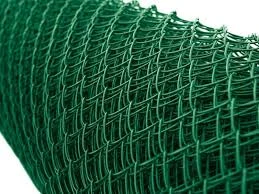Understanding Wire Mesh Cost Per Square Foot
Wire mesh is an incredibly versatile material used in a variety of applications, ranging from construction and agriculture to DIY projects and creative arts. Given its practicality, a common query amongst consumers and contractors revolves around the cost of wire mesh per square foot. Understanding this cost is crucial for budgeting projects effectively, whether you're building a fence, creating a decorative panel, or reinforcing a structure.
Types of Wire Mesh
Before diving into costs, it’s essential to recognize that wire mesh is not a one-size-fits-all product. It comes in various types, each designed for specific purposes. The most common types include welded wire mesh, woven wire mesh, and expanded metal mesh.
1. Welded Wire Mesh This type consists of wire strands that are electrically welded at their intersections, creating a sturdy and rigid product. It is commonly used in construction, agriculture, and as fencing material. The cost typically ranges from $0.30 to $1.00 per square foot, depending on the wire gauge and mesh size.
2. Woven Wire Mesh Made by weaving wire strands together, this type is more flexible than welded mesh and is often used in industrial applications, as well as for screening and filtration. Prices can vary greatly, generally falling between $0.50 to $2.00 per square foot.
3. Expanded Metal Mesh This type of wire mesh is created by cutting and stretching metal sheets, forming a series of diamond-shaped openings. It is popular for security applications, walkways, and decorative purposes. The cost of expanded metal mesh usually ranges from $0.75 to $3.00 per square foot.
Factors Influencing Cost
Several factors can influence the cost of wire mesh per square foot, and understanding them can help you make informed purchasing decisions
wire mesh cost per square foot

1. Material Wire mesh can be made from various materials, including galvanized steel, stainless steel, aluminum, and copper. Galvanized steel is often the cheapest option, while stainless steel is more expensive due to its corrosion resistance.
2. Mesh Size and Gauge The size of the openings in the mesh and the thickness of the wires (gauge) can significantly affect the price. Finer meshes with smaller openings often cost more because they require more material and labor to manufacture.
3. Coating and Treatments Additional treatments, such as galvanization (to prevent rust) or powder coating (for aesthetic appeal and added resistance), will also impact the cost. Expect to pay more for treated wire mesh, as these processes add to production costs.
4. Quantity and Availability Buying in bulk often leads to discounts, so if you require a large quantity, it’s worth checking for wholesale pricing. On the other hand, uncommon wire mesh types may have higher costs due to limited availability.
Application Considerations
When calculating the total cost of a wire mesh project, remember to account not only for the material cost per square foot but also for additional expenses such as shipping, installation, and any necessary fittings. Accurate measurements of your project area will ensure you purchase the right amount of material, helping to prevent waste and overspending.
Conclusion
In summary, the cost of wire mesh per square foot can vary widely based on material type, mesh size, coating options, and quantity purchased. Whether you're looking for durability in construction or aesthetic appeal in landscaping, understanding these factors will assist you in choosing the right wire mesh for your needs and budget. Always explore multiple suppliers and compare prices to ensure you're getting the best deal for your specific project requirements.
















